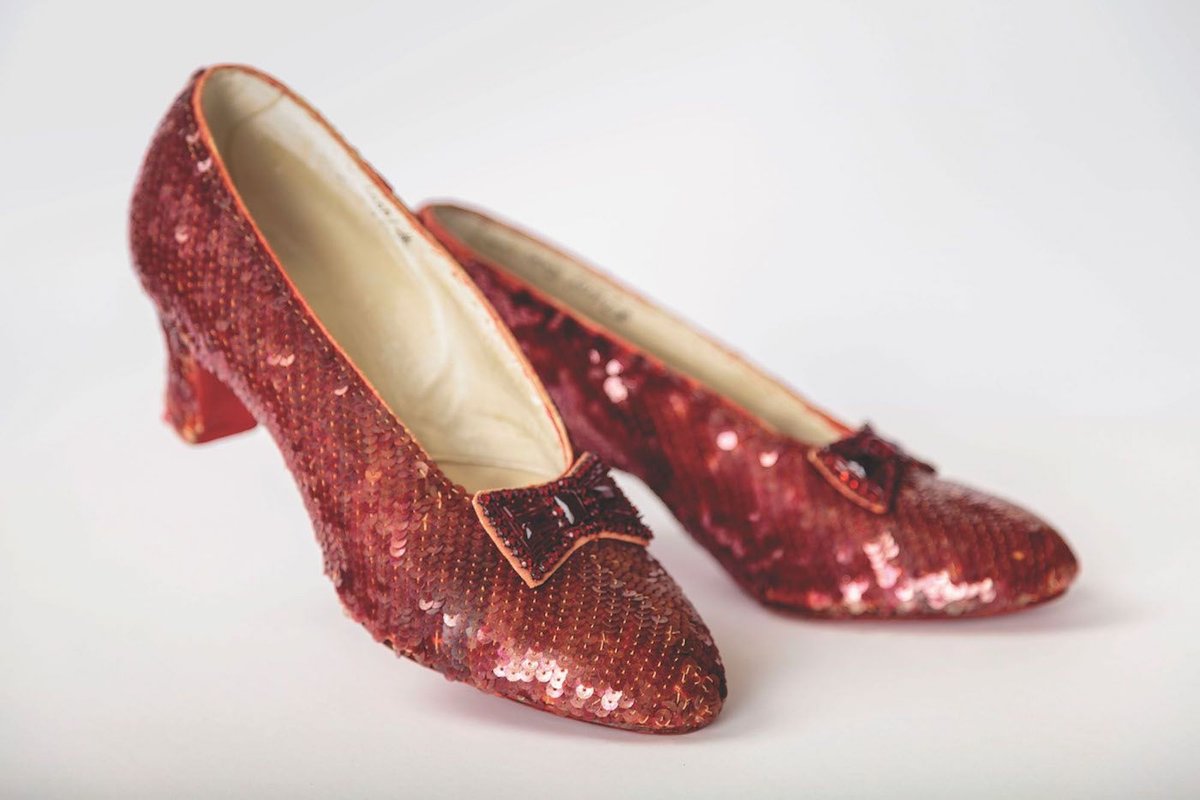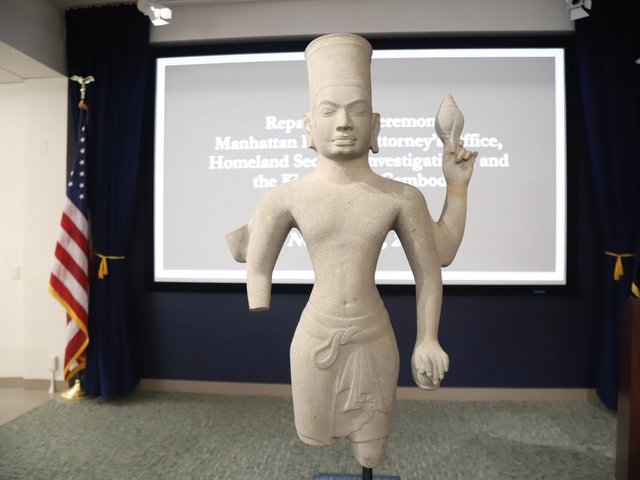A Minnesota man pleaded guilty to stealing the famous red ruby slippers worn by Judy Garland's character Dorothy Gale in the 1939 film Wizard of Oz from the actress’s namesake museum in her hometown of Grand Rapids, Minnesota.
Terry Jon Martin pulled off the heist in 2005, leaving a decade-long mystery in his wake. After a man approached the insurer of the slippers with inside information about their whereabouts, the shoes were recovered by the FBI art crime team in a sting operation in 2018. A one-page indictment made public by the District Court in Duluth, Minnesota, contains no details of the government agency’s road to identifying Martin as the thief. No one had been charged for the crime until earlier this year.
Only four authentic pairs of ruby slippers remain from the original movie set; the pair on loan to the Judy Garland Museum was originally insured for $1m, but is valued in the current market at about $3.5m, according to the prosecution. The three other pairs are currently in the possession of a private collector, the Academy of Motion Picture Arts and Sciences and the Smithsonian Museum of American History.
“I think Terry is facing his own mortality, and I think when people are reaching that point in their life, they cut through the pleasantries and talk turkey,” Martin’s lawyer, Dane DeKrey, told the Associated Press.
At the time of the theft, the ruby slippers were on loan to the Judy Garland Museum from Hollywood memorabilia collector Michael Shaw. The thief climbed through the window and broke the display case holding them. Several rewards were offered in exchange for their safe return, including an anonymous $1m by an Arizonan donor. The slippers are made from wood pulp, silk thread, gelatin, plastic and glass, and are covered with ruby sequins. The bows of the shoes are made from red glass beads.
The Judy Garland Museum was opened in 1975 in the actress's childhood home. It houses the world’s largest collections of Garland and Wizard of Oz memorabilia.
The chief federal judge for Minnesota, US District Judge Patrick Schiltz, did not set a sentencing date. Federal sentencing guidelines have previously recommended eight to ten years in cases like this one, according to DeKrey.
Martin, described as a “sick man” by Dekrey, was seen arriving at the courthouse in a wheelchair, wearing an oxygen mask. The judge agreed to hold the hearing in Duluth so Martin did not have to travel to Minneapolis in his condition.






